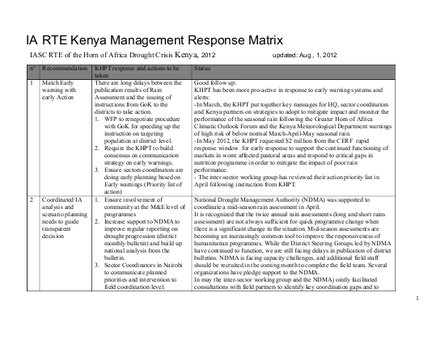
Objectives: The main objectives of IASC RTEs are to provide real-time feedback to the Humanitarian Country Teams, lesson learning for the future and to seek out the views of affected people on the quality of the response.
The IASC RTE aims to be a light and self-sufficient evaluation (i.e., with a footprint that does not unduly burden the country team) but will nonetheless provides a clear understanding of the key issues and challenges of the response through rigorous evidence-based analysis (triangulation, document analysis, key informant interviews etc.). Based on the assessment of the current situation, the IASC RTE will support the three HCTs and regional fora and mechanisms to develop and agree to clear plans of action to address key coordination problems or operational bottlenecks with the overall aim of enabling a more effective response moving forward. Its purpose is not to substitute for other evaluations that IASC members may conduct for their own purposes.
Focus: The major thrust of the IASC RTE will be its focus on the effectiveness and efficiency of the coordination and management systems, and addressing critical issues related to both the provision of relief and to the transition to recovery.